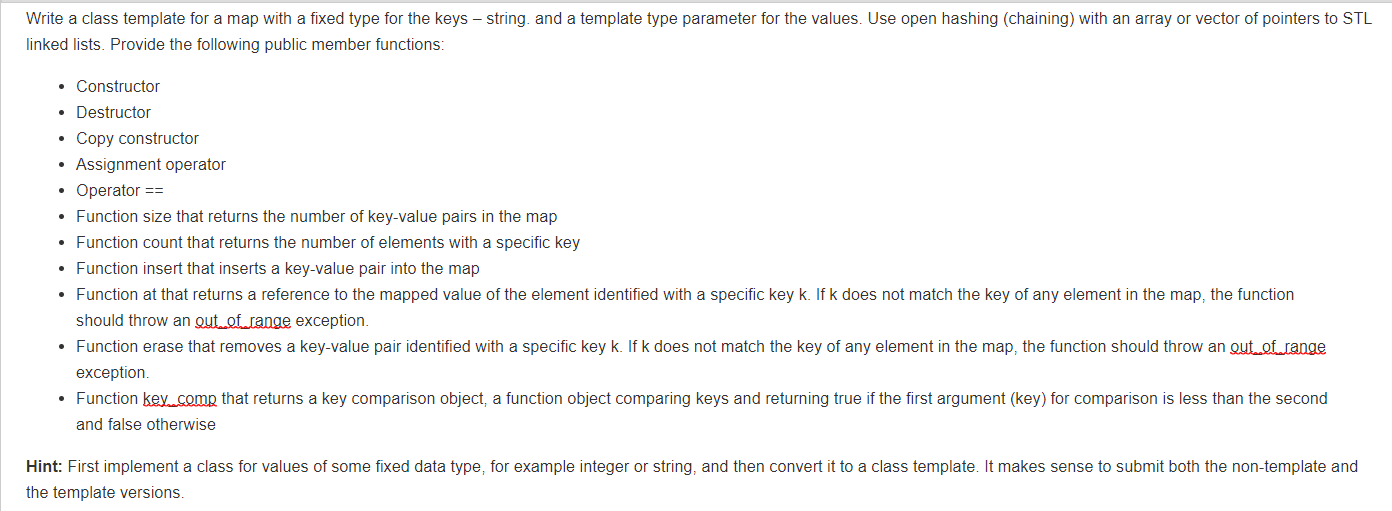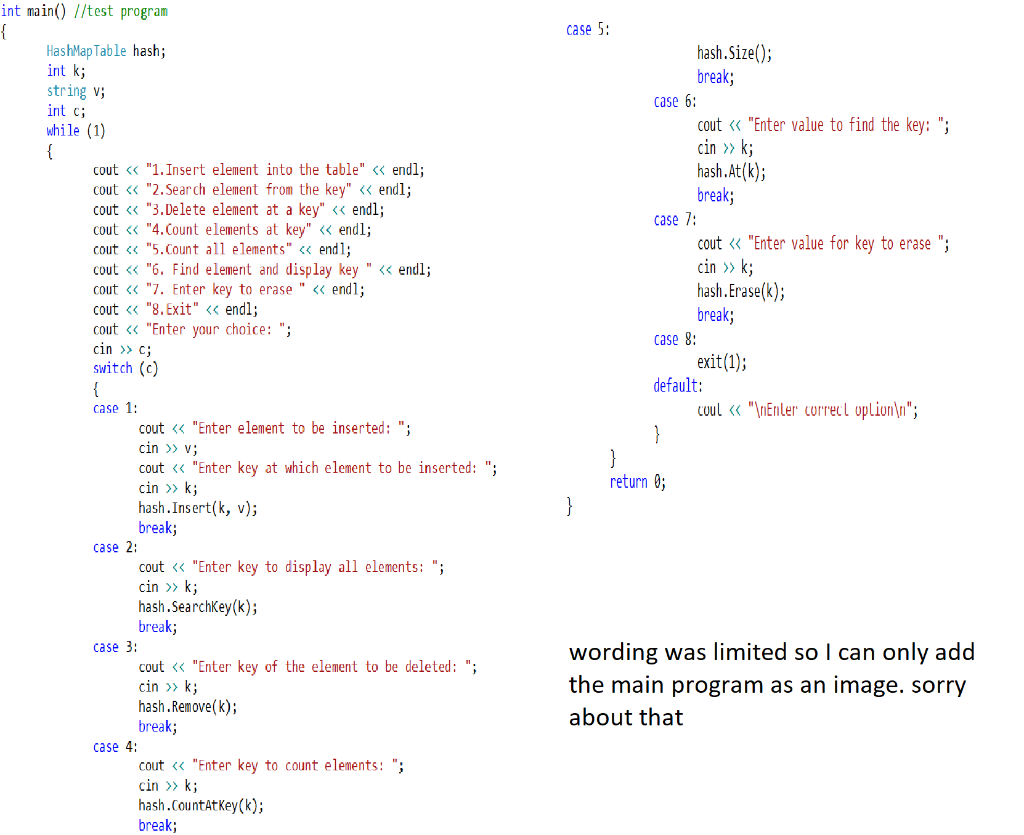Question
rewrite my program , Not generic; single letter ids (not readable); entries are arrays, not lists; wrong method names; does not throw exception; key_comp() not
rewrite my program, Not generic; single letter ids (not readable); entries are arrays, not lists; wrong method names; does not throw exception; key_comp() not implemented; Missing operators =, ==. (visual studio 2019 compiler) this compiler is required by my professor and I cannot use a different compiler unfortunately

#include
const int T_S = 200; using namespace std;
struct HashTableEntry { string v; int k; HashTableEntry* n; HashTableEntry* p; HashTableEntry(int k, string v) { this->k = k; this->v = v; this->n = NULL; } };
class HashMapTable { public: HashTableEntry** ht, ** top; HashMapTable() { ht = new HashTableEntry * [T_S]; for (int i = 0; i n; } if (en == NULL) { en = new HashTableEntry(k, v); if (p == NULL) { ht[hash_v] = en; } else { p->n = en; } } else { en->v = v; } }
void Remove(int k) { int hash_v = HashFunc(k); HashTableEntry* en = ht[hash_v]; HashTableEntry* p = NULL; if (en == NULL || en->k != k) { cout n != NULL) { p = en; en = en->n; } if (p != NULL) { p->n = en->n; } delete en; cout
void SearchKey(int k) { int hash_v = HashFunc(k); bool flag = false; HashTableEntry* en = ht[hash_v]; if (en != NULL) { while (en != NULL) { if (en->k == k) { flag = true; } if (flag) { cout v n; } } if (!flag) cout
void At(int k) { int hash_v, key = 0; bool flag = false; for (int i = 0; i k == k) { flag = true; key = i; } en = en->n; } } } if (flag) { cout
void CountAtKey(int k) { int count = 0; int hash_v = HashFunc(k); HashTableEntry* en = ht[hash_v]; if (en != NULL) { while (en != NULL) { count++; en = en->n; } } if (count == 0) { cout
}
void Erase(int k) { int hash_v = HashFunc(k); bool flag = false; HashTableEntry* en = ht[hash_v]; if (en != NULL) { en = NULL; } }
void Key_comp() { }
void Size() { int count = 0, hash_v; for (int i = 0; i n; } }
} cout
~HashMapTable() { delete[] ht; } };

Step by Step Solution
There are 3 Steps involved in it
Step: 1

Get Instant Access to Expert-Tailored Solutions
See step-by-step solutions with expert insights and AI powered tools for academic success
Step: 2

Step: 3

Ace Your Homework with AI
Get the answers you need in no time with our AI-driven, step-by-step assistance
Get Started


